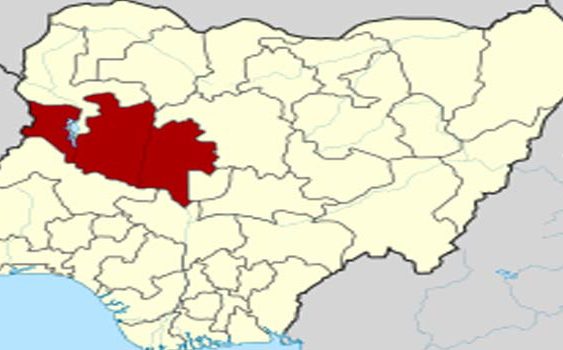- Governor Sanwo-Olu flags off Ojota-Opebi Link Bridge, to be completed in 20 months
- Allow Nigeria go to 2022 World Cup, don’t play qualifiers – Ghana Parliament member tells Black Stars
- There was no second sex tape, Kim Kardashian refutes Kanye West’s claims
- Jaruma Remanded In Prison Over Post On Regina Daniels And Ned Nwoko
- Lanre Gentry confirms paternity of last son with Mercy Aigbe, says ‘He’s my son’ (Photo)
NIHSA Issues Red Alert In Niger, Six Other States

The Nigeria Hydrological Services Agency (NIHSA) has asked the residents of Niger and six other states to prepare for more flooding.
The agency made the call in a statement signed on Wednesday by one of its officials, Mr Clement Nze.
It disclosed that both Kainji and Jebba dams were already spilling water downstream while the level of water in Lokoja, the Kogi State capital has exceeded the corresponding value in 2012.
According to the statement, the flood is likely to affect some states located on the banks of River Niger in the North-central, South-south, and South-eastern parts of the country.
NIHSA asked residents of Kebbi, Anambra, Bayelsa, and Delta states among others to watch out for flash floods due to the overflowing of the dams.
The statement read, “The Nigeria Hydrological Services Agency (NIHSA) wishes to inform the general public, especially those living by the banks of River Niger, that river flooding is likely to occur.
“Both Kainji and Jebba dams are already spilling water downstream. The Level of water in Lokoja today, 29/8/2018, has exceeded the corresponding value on 29/8/2012.
“The following states should watch out: Kebbi, Niger, Kwara, Kogi, Anambra, Delta, and Bayelsa.”
Many states have recorded perennial floods this year leading to the loss of lives and properties.
On July 18, the Federal Government called on Nigerians, especially those living in flood-prone areas to stop blocking drainages to enhance the flow of water.
Vice President Yemi Osinbajo, who made the plea during a condolence visit to Abeokuta in Ogun State, asked the change their habits in terms of blocking drainages.
According to him, flash flooding is likely to occur when there is a large amount of rain falling within a short period of time.
Professor Osinbajo also advised those living in the axis where floods were imminent to move quickly to higher grounds when the rains are heavy, to prevent the loss of life and destruction of property.